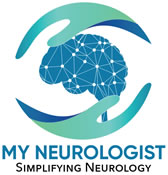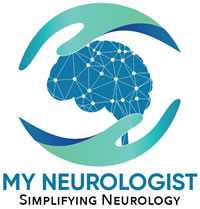What is ataxia?
Ataxia is a term used for incoordination of muscle movements. Physical or motor activities performed by our hands, arms, feet, and legs, and balancing, walking, or running requires coordinated movements of multiple muscles. Lack of coordination within muscles can result in abnormal movements or abnormality of gait and balance.
What are different types of ataxias?
Ataxias can be divided in multiple varieties, which helps to understand their cause and management. Ataxia can be of the following three types:
- Sensory ataxia: This is when feet and legs do not have good sensation resulting in loss of balance and difficulty walking. We all can experience a bit of it standing on a beach with waves sliding the sands beneath our feet resulting in a feeling of loss of balance, especially if we close our eyes. Peripheral neuropathy is the main cause of this type of ataxia. Other cause can be a problem in the posterior part of spinal cord disrupting the sensory pathways.
- Vestibular ataxia: This is due to malfunction of the vestibular system. Many different conditions can affect the vestibular system resulting in loss of balance and difficulty walking. Vestibular system has multiple complex parts and a defect in many of these parts can result in ataxia. Common causes include vestibular neuritis, Benign Positional Vertigo, and Meniere’s syndrome.
- Central ataxia: This is when the cause is in the brain. It can be further divided into many types, but I will mention at least two here.
- Cerebellar ataxia: This is when the defect is in the cerebellum of brain. Cerebellum is involved in coordinating muscle activities. A defect in cerebellum results in loss of coordination instead of weakness. Common reasons are alcohol abuse, hereditary disorders, or stroke.
- Cerebral cortical ataxia: This is when the cause is in the brain but not in cerebellum. Common causes are NPH (Normal Pressure Hydrocephalus), strokes, tumors, infections, inflammation, trauma, or degenerative brain disorders.
What are symptoms of ataxia?
Symptoms can be divided as follows, based upon the areas involved:
- Legs: Unsteadiness and difficulty walking with wide-based unsteady gait.
- Trunk: Unsteadiness and difficulty walking with wide-based unsteady gait.
- Arms: Clumsiness and tremor.
- Head: Difficulty speaking, head tremor, abnormal eye movements, difficulty swallowing, cognitive dysfunction.
There are other symptoms usually associated with ataxia such as anxiety, irritability, disinhibition, changed personality sometimes with tendency for volatile personality.
How is ataxia diagnosed?
It is diagnosed by taking history and a formal physical examination with particular emphasis on certain parts of neurological examination. Sometimes, testing may be needed, which depends upon the type of ataxia one is dealing with, but it is not required in every case. For example, no test is usually needed to diagnose Benign Positional Vertigo. Also, in a patient with cerebellar dysfunction confirmed on examination, there may not be clear evidence on imaging. I find that CT scan, due to its ability to better show black and white contrast, is a better way to assess cerebellar and cerebral atrophy, which might be easily missed by review of an MRI.
How is ataxia treated?
It depends upon the cause. Some of the known causes and their treatment is outlined below:
- Peripheral neuropathy: Depends upon the nature of neuropathy, some are treatable and some not. Treatment depends upon the cause of neuropathy.
- Vestibular dysfunction: There are numerous causes of vestibular dysfunction resulting in ataxia. Treatment depends upon its exact nature and cause.
- Cerebellar: There are many causes of cerebellar injury, commonly from excessive alcohol drinking. There is no known or specific treatment.
- Cerebral: Again, it depends upon the cause. Some causes are treatable and some not. It is important to have the proper diagnosis so that a treatable cause is not missed.
- Systemic: There are a variety of metabolic, toxic, nutritional, infectious, inflammatory, neoplastic, or para-neoplastic conditions resulting in ataxia. Work up is tailored to each patient based upon overall medical situation and history, and treatment is cause specific. Some patients may also benefit from a genetic test.
What care recommendation are important for a patient with ataxia?
- Avoid situations increasing the risk of falling.
- Use a cane, walker, or a wheelchair as appropriate based upon severity.
- Avoid stairs.
- Regular leg strength and balance exercises.
- Regular coordination exercises.
- Keep some lights on at night.
- Healthy lifestyle with regular exercise and balanced meals.
- No alcohol, or any other drug of abuse.
- Larger spoons and drinking cups to avoid spilling.
- Treat anxiety disorder.
- Provided there is no known vitamin deficiency, and diet is balanced including fruits and vegetables, there is no convincing evidence that vitamins or supplements can make any difference.
Who should I see for ataxia?
Start with your primary care doctor. You may have to see a neurologist for proper diagnosis.
Which patient can benefit from genetic testing for ataxia?
Not every patient needs a gene test. Most patients with this condition have other reasons for ataxia. If no other cause is noted, a neurological consultation is required, which can help to determine the most likely type of ataxia. At this point, a gene test can be considered but it should be done after appropriate genetic counseling. Gene test may help to identify the abnormal gene but so far this information does not provide any specific treatment for ataxia.
Where can I get more information about ataxia?
The International Parkinson and Movement Disorder Society


Leave a Reply
Your email is safe with us.
You must be logged in to post a comment.